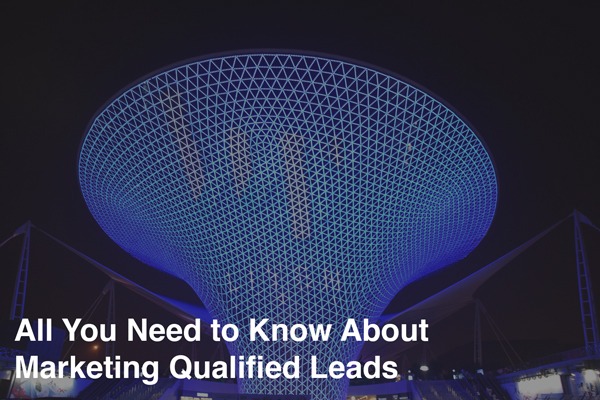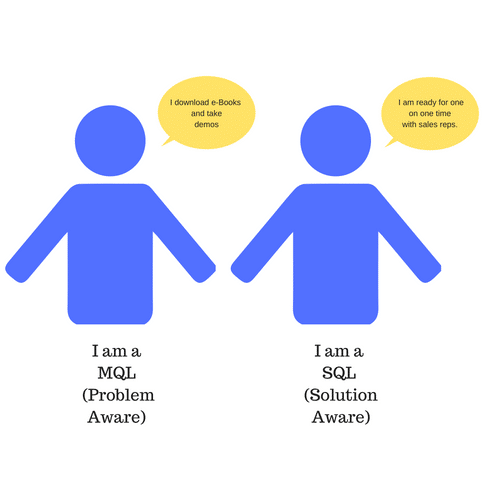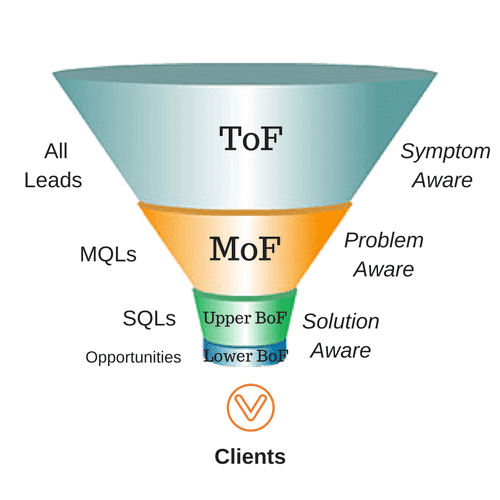
So you have a business!
Unless your goals and objectives are radically different from other companies in the market you are looking to improve your sales and your conversions.
And it is likely that you invest a sizeable chunk of your budget in producing quality marketing collateral and messages.
But the world is changing. The way people purchase is shifting.
Gleanster says that at least 75% of all the traffic that you get to your site is not ready to buy.
Ouch!!
That means three fourth of the page views and the hits you registered last month were from people like me – researching a concept or a subject to know more about it with no intention of spending a dime. Not now, not in the near future.
What happens when a rogue visitor downloads an eBook on a juicy subject like “How to Improve Your SEO Rankings without Blogging” and your marketing team immediately hands him over to sales?
You are snubbed. And your reps spend precious time chasing a freelancer trying to pen his next article.
This is why standards, definitions and quantifications like Marketing Qualified Lead (MQL) are so important.
In this piece, I will explore the exact meaning of the term MQL – you need a clear definition, there is too much fluff around. The difference between a MQL and a SQL elaborated from the perspective of the buyer and his journey and how to set up an effective lead scoring system to hand eligible prospects over to sales for intensive follow-ups.
Who is a Marketing Qualified Lead (MQL)?
A marketing qualified lead is someone who is Problem Aware. He (or she) is an individual who is open to receiving detailed content, strong marketing messages and definitive calls to action (like demo offers) from a brand because he is:
- Aware that the symptoms he is experiencing are the result of a deeper, underlying problem.
- Eager to find out more about the issue and then solve it through a specific product later down the line.
A MQL is not someone idly consuming content for purposes other than finding a solution to his dilemma. He is ready to dive deeper and engage in more meaningful ways.
Let’s clarify this further with a hypothetical situation.
Person A and person B both visit the squeeze page of a brand. This brand specializes in offering life improvement products. Person A fills out the form and accesses an e-Book about the art of stress free living. Person B does the same.
Now both individuals are in the brand’s system – either the email automation platform or the marketing automation set-up.
From here on how they act is critical to understanding who is a Marketing Qualified Lead and who is just a passer-by.
If after receiving the e-Book, person A returns to the site and takes what is known as a strategic action like say visiting the page for the Stress Free Living E-Course then that lead is someone who is definitely interested in learning more about increasing his productivity to eliminate stress and overwhelm.
Person A is quite possibly a Marketing Qualified Lead (MQL).
Person B on the other hand receives the information and never returns to the site. He is still a part of the “email list” that is associated with the e-Book and will receive frequent updates but as far as the brand is concerned, B is supporter or fan material. He however isn’t yet Marketing Qualified Lead (MQL).
Being a MQL boils down to intention!
A MQL intends to resolve the issues that are causing him discomfort and he is conducive to being nurtured. A MQL once engaged and invested in the brand – in terms of time and attention – is very likely to become a Sales Qualified Lead (SQL) and actually purchase.
What is the Difference between MQLs and SQLs?
This is perhaps an even more important question than simply asking “Who is a MQL?” Because it gives marketers the full picture. It better explains their role in the funnel and helps sales and marketing get along better!
A Sales Qualified Lead is Solution Aware. He not only knows that he has a problem and that the issue needs to be sorted out, he is also favorably disposed towards a brand – your brand – when it comes to purchasing a solution.
A Marketing Qualified Lead wants resolution. But he still doesn’t have enough information to choose a particular product or service. So he requires plenty of coaxing and a display of all the features and benefits of a solution to be convinced.
Properly done a MQL should always move on and become a SQL. In an ideal world!
So how do you differentiate between a MQL and a SQL in a way that is of use to companies?
Well, it is simple.
Once a prospect is declared MQL, he is ready to read more in-depth content like eBooks and might even jump on a demo call with the sales team. He is likely researching the best fit. MQLs might be nurtured by both sales and marketing.
A SQL on the other hand is someone whose research is done. He can receive personalised and exhaustive sales department attention. His actions indicate that he is ready to make a decision. The sales reps soothe away purchase anxieties, re-affirm product suitability and swing that pending decision in favor of the company.
It sounds simple and logical but in real company scenarios there is a vast, almost unbridgeable gulf between marketing and sales, between MQLs and SQLs.

Some Shocking Stats about MQLs & SQLs: The Blame Game Continues
LinkedIn and HubSpot joined forces to create a beautiful SlideShare about the communication gap between marketing and sales.
- Only 6% of sales people believe that marketing hands them over promising prospects. The remaining 94% feel that the lead quality is questionable.
- 40% of marketers flat out do not know what a Marketing Qualified Lead or a Sales Qualified Lead is!
- 59% of marketers do not have a formal agreement and division of responsibilities with their sales counterparts. This means what is SQL to the marketing team feels like an under-nurtured prospect to the sales department. There is no consensus to be had.
Understanding who a MQL is, nurturing these individuals in loose collaboration with the sales department and then handing them over to dedicated sales reps can add substantially to the revenue of a company.
I went ahead and discussed SQLs in this article because to be frank the main purpose of defining and zeroing in on a MQL is to take him to the stage where he becomes a SQL. That is the desired conclusion. MQLs and SQLs go hand in hand. Focusing on one concept without bringing in the other can’t generate revenue for a company.
Importance of a Marketing Qualified Lead (MQL):
- Betters Understanding of Ideal Client: A Marketing Qualified Lead is someone who has a high probability of becoming a customer down the line. The mere act of finding such prospects with potential and offering them more relevant content around how a particular problem may be solved and how a company assists in doing so improves the understanding of who the ideal buyer is.
- Improves ROI of Content Marketing: As already discussed a Marketing Qualified Lead has the intention to purchase and this intention is reflect in his actions. So first and foremost there is the need to put together a list of actions that reveal the desire to purchase. This is not possible without a thorough study of client preferences, psychographics and demographics.
This is going beyond having an idea of what the possible buyer looks like. This is documenting every facet of his personality and stepping into his shoes. It is done through the creation of a formal buyer persona.
Since 41% of marketers do not use a buyer persona and the tool is invaluable in content marketing, defining and using the concept of MQLs can actually boost the ROI of content production. Think about it!
- Makes the Sales Funnel More Effective: In general the sales funnel consists of the Top of Funnel (ToF), Middle of Funnel (MoF) and Bottom of Funnel (BoF). These terms sound alien without context so let me add some. In ToF leads are Symptom Aware. They have a pain point – like say thinning hair. But they do not realize that this is just the outer manifestation of a deeper problem. Something like poor nutrition. So they desperately go around looking for help.
They find it and they become Problem Aware. Problem Aware folks know what is going wrong and they conduct research to find a possible solution. This is the MoF. Once the leads are convinced a solution exists, they graduate to looking for a particular brand to purchase the solution from. They become Solution Aware. And pass into the BoF.
Knowing who is a MQL and when he becomes a SQL creates a clear line of distinction between the responsibilities of the marketing and the sales department.
MQLs occupy the MoF. The transition from MQL to SQL should ideally see sales and marketing joining hands for proper scoring. The lowest portion of the BoF belongs to the opportunities that are now ready to be closed.
This way the ceaseless blaming comes to an end. A robust hand-off process is developed. And the right people are sent to the sales reps at the right time to exit the funnel as customers.

- Improves Revenue: This is obvious. Handing a MQL to the sales department is better utilization of rep time than simply bombarding them with all the traffic that a company gets. Yet most brands do just that.
They have automated email sequences that do not take into account lead scoring and simply ping representatives to “follow-up” with a lead as soon as he finishes receiving the series. This is a waste of resources that can be immediately avoided by following the MQL concept.
How to Set-Up a Robust MQL Lead Scoring System?
Lead scoring is assigning each activity undertaken by a lead a certain “weight” or “value”. This way as an individual interacts with a brand by downloading gated content, visiting certain pages and following certain CTAs, he is internally awarded points for his actions.
The cumulative sum of these points is known as his lead score.
As soon as this sum exceeds the sum that is designated for a MQL or a Marketing Qualified Lead, the person is given the tag “MQL” and nurtured accordingly.
It should be kept in mind that lead scoring is the process through which both MQLs and SQLs are identified.
There are a few steps to follow to develop a robust MQL lead scoring strategy:
- Start by creating a buyer persona. Find out what are the possible symptoms that indicate the pain point your product solves. There might be multiple. Define how a lead who suffers from one symptom might act and what he might seek in terms of help as opposed to someone who is suffering from another symptom.
- Create the full range of content for Symptom Aware and Problem Aware prospects. This includes blogs and articles that speak about the different symptoms and tie them to the main underlying problem and more in-depth material like e-Books to show how the problem can be solved.
- Identify actions that indicate intent. If an individual is suffering from symptom 1, he might read article 1, download infographic 1 and visit the page for product D. This will not apply to someone with symptom 2. Use your buyer persona to identify these likely actions, prioritize them on the basis of intent to possibly purchase and give them a score. This can be defined within the marketing automation system.
- Take away points for being idle. Most companies do not do this. But you must deduct points for “negative” actions like staying idle or not opening emails.
- Score and grade for the best fit. A MQL is a MQL only when the lead has both the intention and the means to purchase. Scoring is based on actions by a prospect and thus indicative of his intentions. Grading is scrutinizing the individuals background (his job post, his geographical region, his income bracket) to ensure that the person has the money and the authority to make the purchase. A high score and a high grade are needed for the perfect MQL.
As soon as a person acquires the status of MQL he starts the journey towards being a SQL. The marketing department thus needs to produce content for the next set of milestones as well.
Having a large pool of MQLs is an asset that most brands crave. However just a hand full of well scored bona fide leads are always better than a pipeline of visitors who will never buy. Remember quality over quantity. Always!
“Sales Leads Means Retail Vend And E-commerce” by Stuart Miles
[text-blocks id=monster-newsletter]




